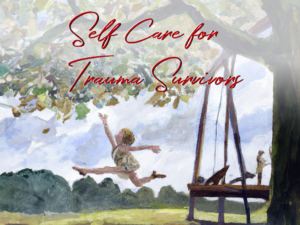 Self-care is a vital component of well-being, particularly for trauma survivors. Trauma, whether from abuse, neglect, or other distressing experiences, can disrupt an individual’s ability to nurture themselves and maintain overall health. Renowned trauma experts like Lisa Ferentz emphasize the transformative power of self-care in the healing process, particularly for those with a history of trauma.
Self-care is a vital component of well-being, particularly for trauma survivors. Trauma, whether from abuse, neglect, or other distressing experiences, can disrupt an individual’s ability to nurture themselves and maintain overall health. Renowned trauma experts like Lisa Ferentz emphasize the transformative power of self-care in the healing process, particularly for those with a history of trauma.
Understanding Self-Care in the Context of Trauma
Self-care involves consciously choosing actions and behaviors that promote well-being across various dimensions: emotional, mental, physical, spiritual, and psychological. For trauma survivors, engaging in self-care can be particularly challenging due to the negative messages and experiences from their past. Many trauma survivors equate self-care with selfishness, stemming from childhood environments where their needs were neglected or dismissed.
Lisa Ferentz highlights that for trauma survivors, self-care is not just about pampering oneself but reclaiming the right to be treated with love and respect. It involves a deliberate effort to recognize one’s needs and take steps to meet them, fostering a sense of self-worth and inner peace.
The Challenges of Self-Care for Trauma Survivors
Distorted Beliefs and Lack of Modeling
Trauma survivors often struggle with self-care due to distorted beliefs formed during childhood. They may have learned that attending to their needs is wrong or undeserved. Additionally, many trauma survivors did not have positive role models who demonstrated healthy self-care behaviors, making it difficult for them to know where to start.
Hypervigilance and Self-Sacrifice
Survival mechanisms in traumatic environments often involve hypervigilance and focusing on others’ needs to ensure safety. This can make self-care feel counter-intuitive and uncomfortable. Trauma survivors may find it challenging to shift their focus inward and prioritize their own well-being.
The Importance of Self-Care for Holistic Healing
Engaging in self-care is crucial for trauma survivors to heal on a holistic level. It supports recovery by addressing the interconnected aspects of well-being:
Emotional and Mental Health
Self-care practices help trauma survivors manage their emotions and thoughts. Engaging in activities that promote relaxation and joy can reduce anxiety and depression, enhancing overall mental health. Positive self-talk and affirmations can help reframe negative beliefs and foster a healthier self-image.
Physical Health
Physical self-care involves activities that promote bodily health, such as proper nutrition, regular exercise, and adequate sleep. These practices help trauma survivors reconnect with their bodies, release stored tension, and improve overall physical well-being.
Spiritual and Psychological Health
Spiritual self-care, including mindfulness, meditation, and spending time in nature, can help trauma survivors find inner peace and a sense of purpose. Psychological self-care involves activities that enhance self-awareness, such as journaling or creative expression, which aid in processing thoughts and emotions.
Lisa Ferentz’s 11 Practices to Promote Well-Being
Lisa Ferentz offers practical strategies to help trauma survivors incorporate self-care into their daily lives. These practices can serve as “homework assignments” to build self-care habits and promote well-being:
1. Reconnect with Nature: Encourage clients to take a 15-minute walk or lie in the grass, observing their surroundings to experience nature’s calming effects.
2. Positive Self-Talk: Suggest that clients talk kindly to themselves in front of a mirror, countering critical or perfectionistic thoughts.
3. Work/Life Balance: Discuss ways to create a better balance, such as leaving work on time twice a week to prevent burnout.
4. Ideal Workplace Visualization: Have clients write and visualize their ideal work environment to counteract toxic work experiences.
5. Healthy Choices: Encourage clients to make choices that support nutrition, exercise, and sleep, and document their successes to reinforce positive habits.
6. Medical and Mental Well-Being: Identify one way to improve health, such as scheduling a doctor’s appointment or starting a new exercise routine.
7. Digital Detox: Recommend powering down from technology for an hour daily to reduce overstimulation and emotional upset.
8. Social Connection: Help clients reduce isolation by connecting with loved ones and setting boundaries with demanding or unsupportive individuals.
9. Unconditional Affection: Suggest spending time with a baby or pet for unconditional love and comfort.
10. Creative Expression: Encourage journaling or drawing to process emotions and enhance creativity.
11. Joy and Laughter: Advocate for daily activities that bring joy or laughter to foster positive emotions.
Conclusion
Understanding and prioritizing self-care is essential for trauma survivors to heal holistically. Through self-care, individuals can address the emotional, mental, physical, spiritual, and psychological impacts of trauma. The teachings of Lisa Ferentz provide valuable guidance on incorporating self-care into daily routines, promoting overall well-being and helping trauma survivors reclaim their right to love and respect themselves. By fostering self-care habits, trauma survivors can experience profound improvements in their quality of life, inner peace, and sense of self-worth.






